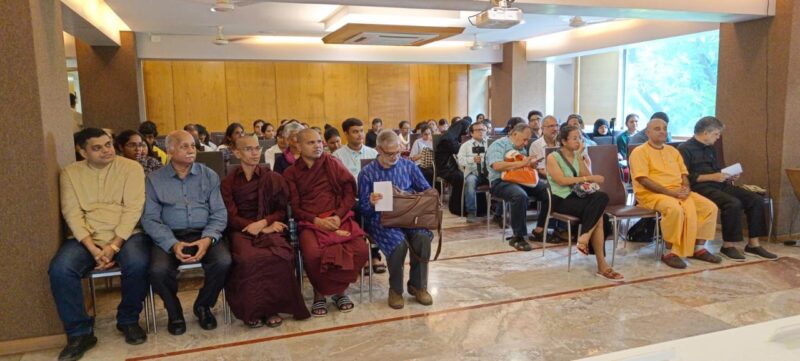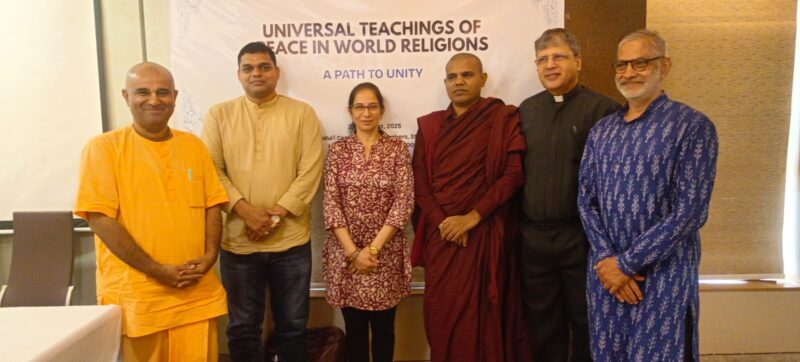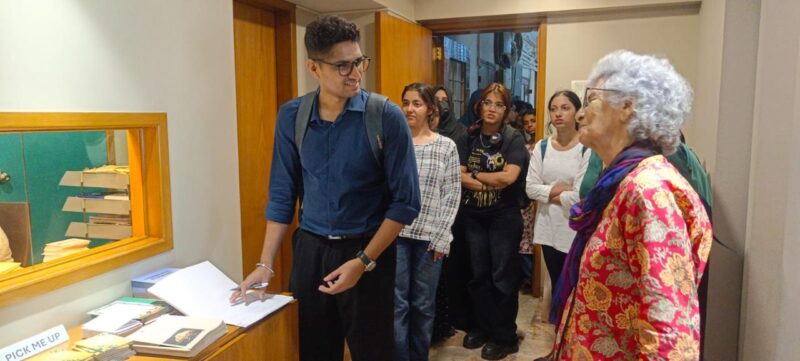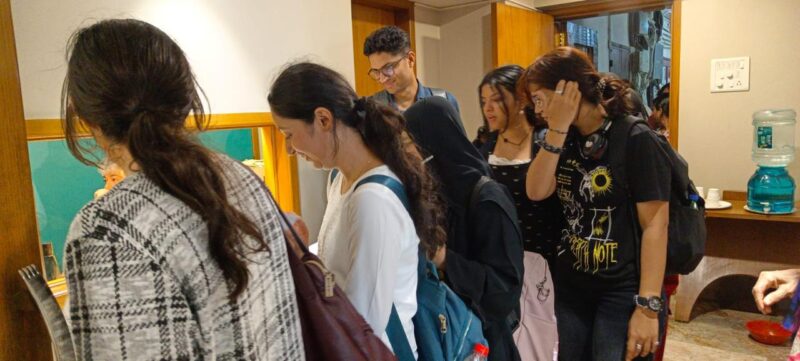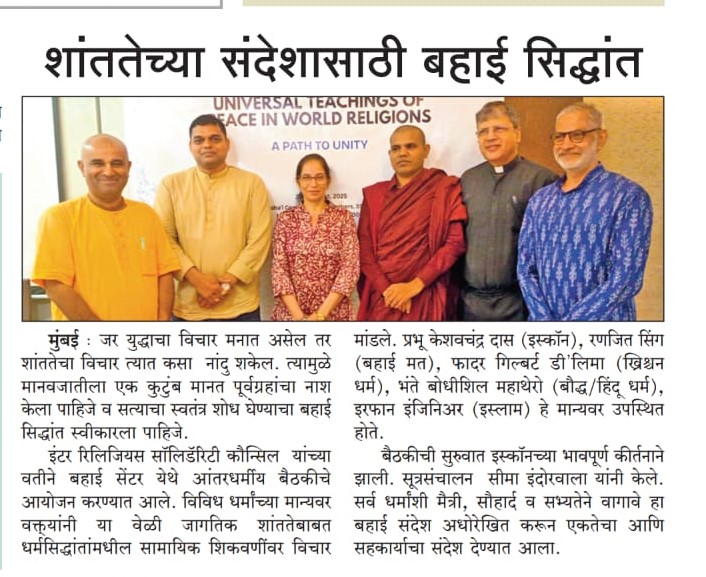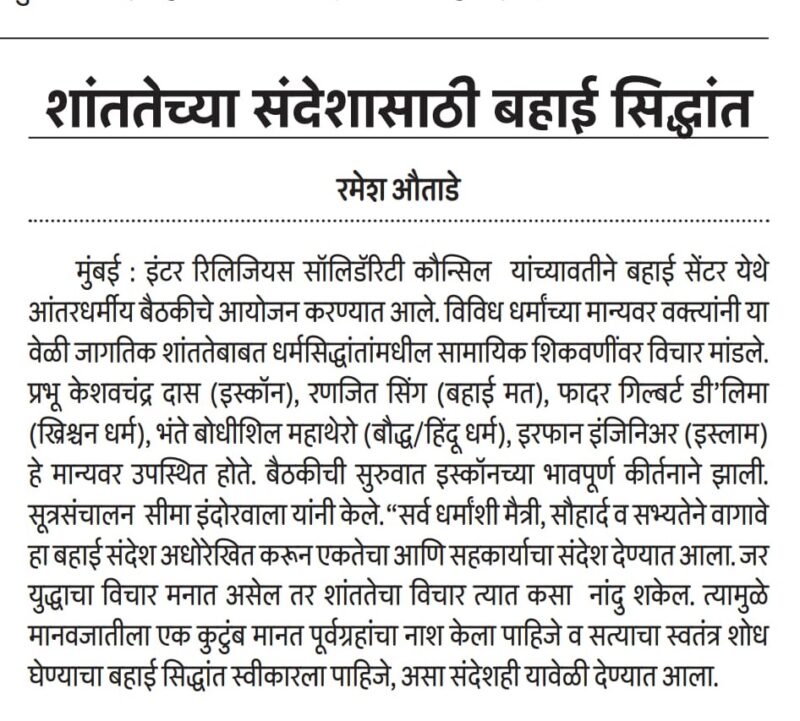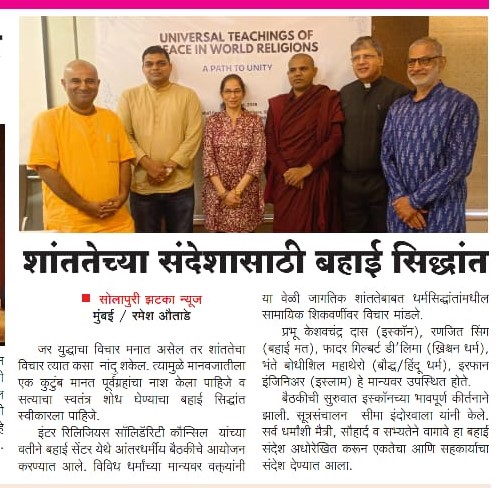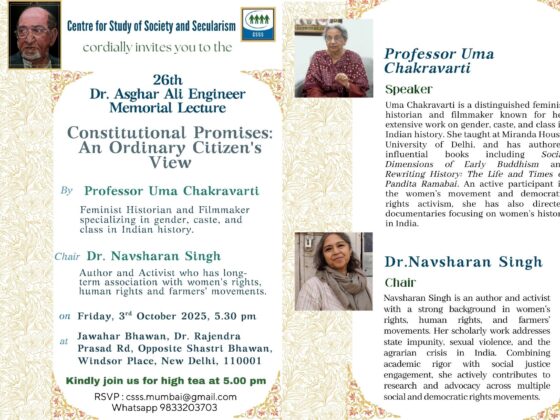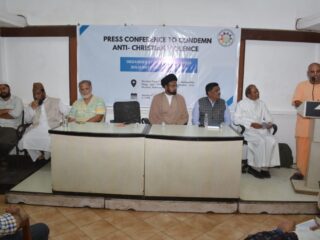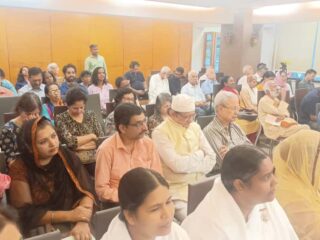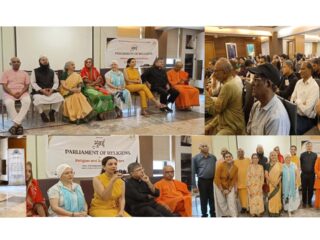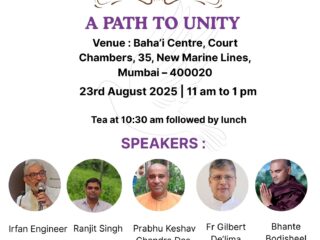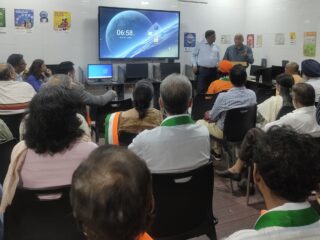Diya Sameer
28/08/2025
“It is not the absence of conflict but harmony within ourselves and with others that creates true peace,” shared Prabhu Keshav Chandra Das, convenor of the Inter-Religious Solidarity Council (IRSC), setting the tone for an energy-filled and deeply inspiring morning on 23rd August at the Baha’i Centre, Marine Lines, Mumbai. The event, titled “Universal Teachings of Peace in World Religions: A Path to Unity,” brought together religious leaders, IRSC members, lawyers, journalists, and enthusiastic youth—including students from Sophia College and Nirmala Niketan College.
Hosted by the IRSC, the gathering emphasized that despite having many distinct paths—different prayers, scriptures, and rituals—the universal values underlying all faiths provide bridges for unity, compassion, and justice rather than barriers. This message is particularly urgent in today’s climate where religious intolerance and social fractures are on the rise.
The morning opened with a soulful Baha’i prayer led by Seema Indorewala, who quoted, “If the thought of war occupies your mind, how can the thought of peace possibly dwell within you?” This was followed with Kirtans recited by a team from ISKON, creating an atmosphere of spiritual upliftment for all present in the gathering, whether from different religions or atheists.
Prabhu Keshav Chandra Das spoke about spiritual practices such as sādhanā (inner discipline), sadāchār (righteous conduct), and satsang (community with truth-seekers) as essential foundations to cultivate the inner harmony necessary for peace in society. Building on this, Irfan Engineer, co-convenor of the IRSC, invited the audience to deepen their reflection, drawing inspiration from Sant Kabir’s words: “When I searched for evil around me, I found none. But when I looked within, I found that no one was worse than myself.” His message urged the audience to look beyond surface peace in Mumbai’s diverse society and focus on self-awareness and justice as essential for lasting social harmony.
Echoing this call for unity in diversity, Ranjit Singh shared a poem expressing that although our ways of calling God may differ, “the one who listens to us is one,” showing how religious differences can be a source of connection rather than division. Following this, Father Gilbert De’ Lima offered a moving account from Christianity emphasizing forgiveness and reconciliation as pillars of peace. He recounted the remarkable forgiveness shown by Gladys Staines, who publicly pardoned her husband’s killers*—a profound example of love transcending pain and division. Complementing this, Bhante Bodisheel Mahathero introduced the ethical principles of Tatvas from Buddhism, teaching that balanced living and compassion cultivate peace within and between communities.
Together, their voices wove a rich tapestry of shared values—love, justice, compassion, and forgiveness—that offer a universal path to peace, transcending separate faith traditions and inspiring a shared commitment to harmony.
A lively question-and-answer session followed, allowing youth and attendees to share how the morning’s insights shifted their perspective. Several students also asked questions about contemporary religious issues such as the place of LGBTQIA community in different faith traditions, effects of religious nationalism on society, along with topics like traditions, gender and religion, and non-violence.
The event concluded on a convivial note with a solidarity lunch. Through a shared commitment to universal values and spiritual unity, this gathering affirmed a hopeful truth in today’s tension-filled times: while our spiritual paths may differ, these differences serve as bridges to understanding, empathy, and harmony.
*Gladys Staines is the widow of Graham Staines Australian missionary Graham Staines who was burnt alive along with their two sons Philip (aged 10) and Timothy (aged 7) by a mob led by the Bajrang Dal activist Dara Singh in Odisha, India on 22 January 1999.
Media coverage

